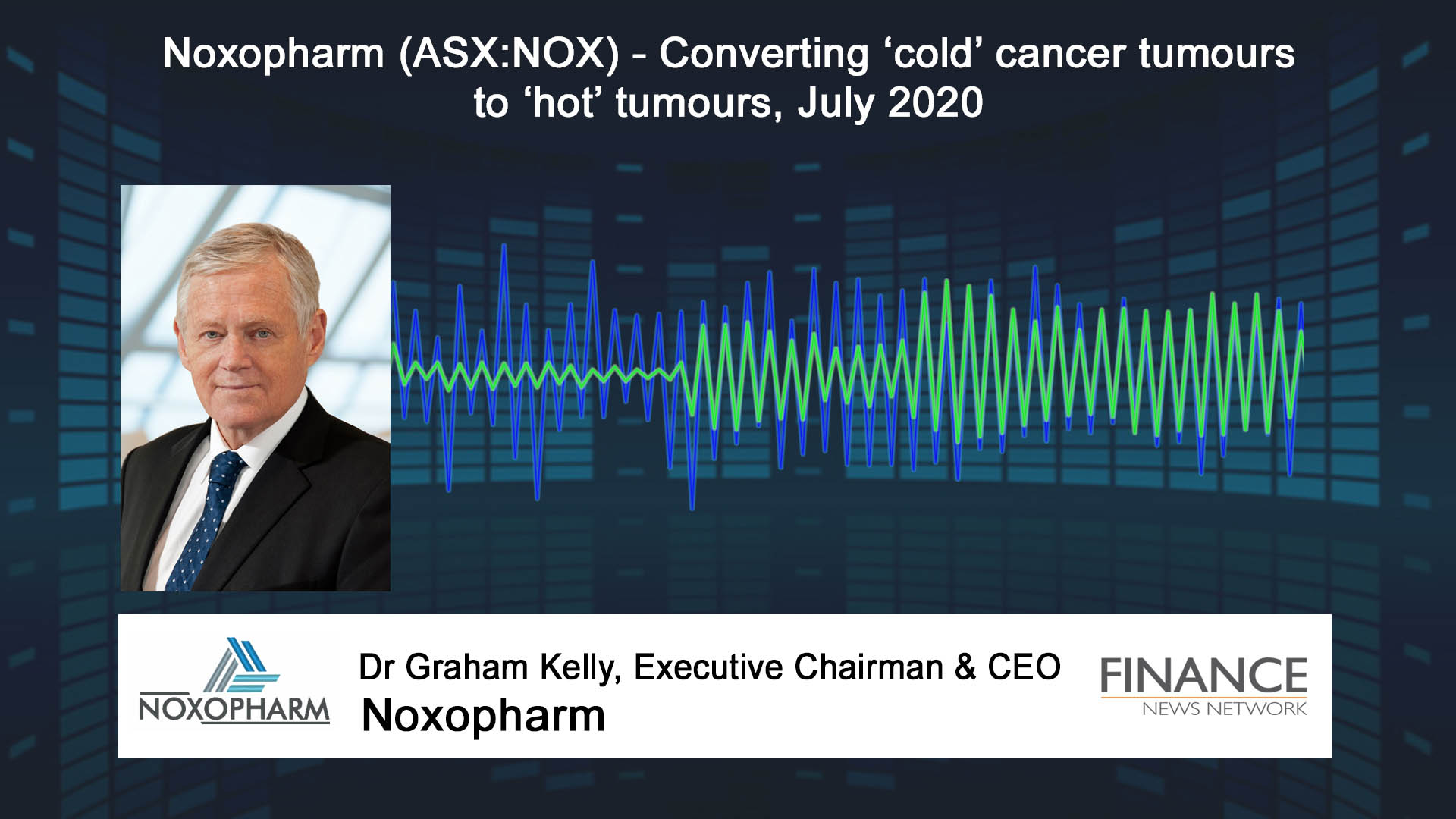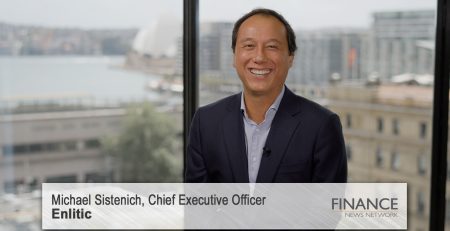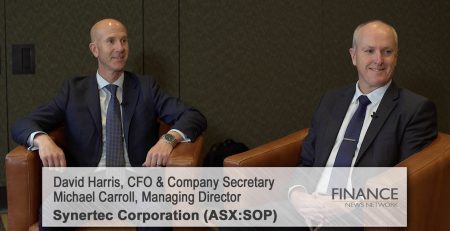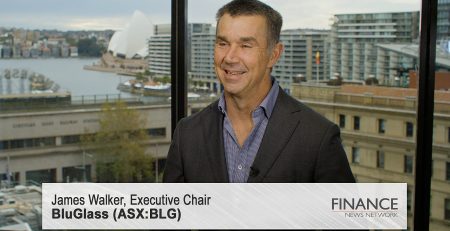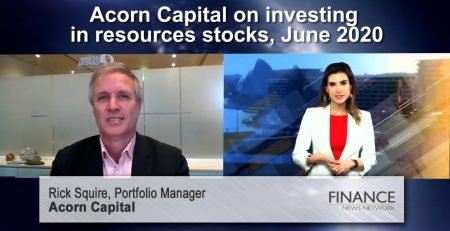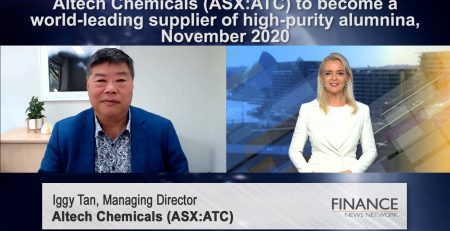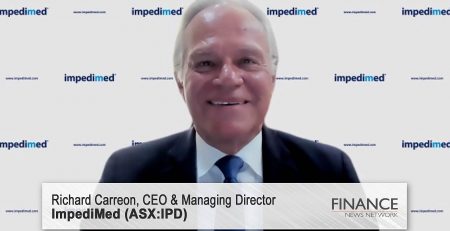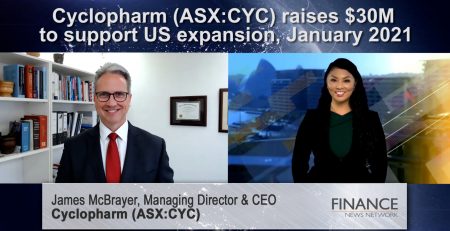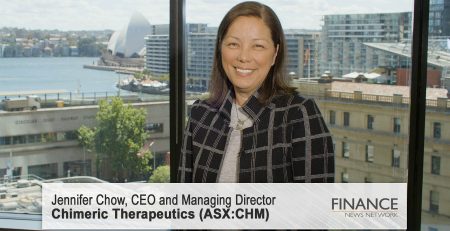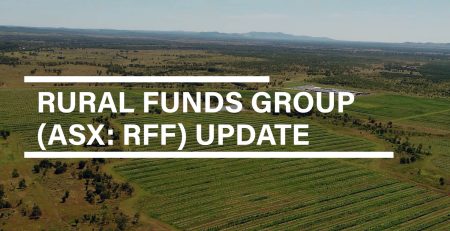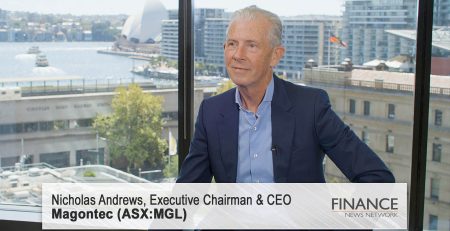Noxopharm (ASX:NOX) – Converting “cold” cancer tumours to “hot” tumours
Noxopharm Limited (ASX:NOX) Executive Chairman and CEO Dr Graham Kelly discusses important pre-clinical results for the company's programs.
Rachael Jones: Hello. I'm Rachael Jones for the Finance News Network. Joining me again from Noxopharm (ASX:NOX) is Executive Chairman and CEO Dr Graham Kelly. Graham, welcome back to FNN.
Dr Graham Kelly: Thanks, Rachael.
Rachael Jones: So Noxopharm has just announced some exciting new data, and it has filed a new patent around that data. Can you explain what the patent is all about?
Dr Graham Kelly: We actually regard this patent as probably the most valuable of all the various patents that we've lodged. We see the data behind the patent as being groundbreaking because it deals with what most people in the industry regard as arguably the greatest challenge facing improving the lives of cancer patients. And basically, this involves getting the body's immune system to do its job and to attack and eradicate cancer cells from the body. There's a whole new class of anti-cancer drugs known as immuno-oncology, or shortened to IO drugs, that can do this. And the results can be spectacular when they work. The problem is that they only work in a small percentage of patients overall. So getting them to work in the majority of patients clearly would revolutionise the management of cancer. The industry believes that it knows what the problem is and what needs to be done to overcome it, but despite a tremendous amount of work, to date, nothing really promising has emerged. Noxopharm believes that it is on the edge of solving the problem, which is why we regard this patent as so very valuable.
Rachael Jones: And the announcement mentioned something about cold and hot tumours. Can you explain what these are?
Dr Graham Kelly: Now, tumours without any immune cells are known as cold tumours. And the problem for IO drugs is that the great majority of tumours are cold. Now, in a minority of patients, their tumours happen to contain quite higher levels of immune cells. And these tumours are known as hot tumours. And these are the patients that respond to IO drugs. Why some cancers are hot to start with isn't clear, but the task is clear. If we could convert cold tumours into hot tumours, then most cancer patient should respond to IO drugs and enjoy a cancer-free life.
Rachael Jones: Now, where do you see Noxopharm placed compared to other companies in what is obviously a highly sought after field?
Dr Graham Kelly: We're aware of a number of different approaches being looked at by the industry. And that includes a number of technologies that have actually reached the clinic. But so far, we're not aware of any that appear to be working to an extent that you would want to see them work. I think what distinguishes Noxopharm is that others are working from the ground up, and by that, I mean that they are starting with untested theories about converting tumours from cold to hot. They have some way to go yet before they know whether those tumours or those theories are working or not.
We're going the other way. We're working from the top down. Our drug Veyonda is already in the clinic and already producing clinical responses that suggested to us that it was working via the patient's immune system. Now, one of those responses is something called an abscopal response, and that strongly suggested that we were getting a cold to hot conversion. So, to see if we were on the right track, we commissioned two laboratories, both independent and both highly regarded globally, and asked them to test that theory in the laboratory. That is, were we converting cold tumours into hot tumours? And we were delighted to see that the data actually supported the theory. So what that means is that we have a drug candidate in Veyonda, already in the clinic, already producing apparent IO or immuno-oncology clinical responses. And just as importantly, having been proven to be well tolerated.
Rachael Jones: And so what does this mean for NOX shareholders?
Dr Graham Kelly: Well, owning a drug that potentially could mean the difference between immuno-oncology drugs having annual sales of US $20 billion a year at the current time, to something predicted to be in excess of a $100 billion, that's something that we expect the industry and the market to value appropriately in due course. And having started the process of protecting our IP, that means that we are now able to start conversations with large pharma companies that have these immuno-oncology drugs. This is an extraordinarily competitive field, so we are confident that, in due course, we can forge a partnership with one of the key players.
Rachael Jones: Dr Graham Kelly, thanks so much for joining us today, and thanks for the update.
Dr Graham Kelly: Thank you, Rachael.
Ends
Copyright 2020 – Finance News Network
Source: Finance News Network

